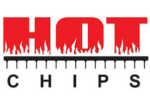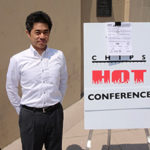In this video from Arm HPC Asia 2019, Elsie Wahlig leads a panel discussion on Frontiers of AI deployments in HPC on Arm. “Topics at the workshop covered all aspects of the Arm server ecosystem, from chip design, hardware, software architecture and standardization to performance tuning, and applications in biology, medicine, meteorology, astronomy, geography etc. It is exciting to see that Arm servers are being used in so many areas, contributing significantly to the global economy.”
Radio Free HPC Looks at Hot Chips for 2018
In this podcast, the Radio Free HPC team looks at the latest developments in processor technology coming out of the recent Hot Chips conference. “The HOT CHIPS conference typically attracts more than 500 attendees from all over the world. It provides an opportunity for chip designers, computer architects, system engineers, press and analysts, as well as attendees from national laboratories and academia to mix, mingle and see presentations on the latest technologies and products.”
Satoshi Matsuoka Moves to RIKEN Center for Computational Science
Satoshi Matsuoka from the Tokyo Tech writes that he is taking on a new role at RIKEN to foster the deployment of the Post-K computer. “From April 1st I have become the Director of Riken Center for Computational Science, to lead the K-Computer & Post-K development, and the next gen HPC research. Riken R-CCS Director is my main job, but I also retain my Professorship at Tokyo Tech. and lead my lab there & also lead a group for AIST-Tokyo Tech joint RWBC-OIL.”
Beauty Meets HPC: An Overview of the Barcelona Supercomputing Center
“The multidisciplinary research team and computational facilities –including MareNostrum– make BSC an international centre of excellence in e-Science. Since its establishment in 2005, BSC has developed an active role in fostering HPC in Spain and Europe as an essential tool for international competitiveness in science and engineering. The center manages the Red Española de Supercomputación (RES), and is a hosting member of the Partnership for Advanced Computing in Europe (PRACE) initiative.”
Video: Japan’s Post K Computer
Yutaka Ishikawa from Riken AICS presented this talk at the HPC User Forum. “Slated for delivery sometime around 2022, the ARM-based Post-K Computer has a performance target of being 100 times faster than the original K computer within a power envelope that will only be 3-4 times that of its predecessor. RIKEN AICS has been appointed as the main organization for leading the development of the Post-K.”
Fujitsu Unveils Processor Details for Post-K Computer
The Fujitsu Journal has posted details on a recent Hot Chips presentation by Toshio Yoshida about the instruction set architecture (ISA) of the Post-K processor. “The Post-K processor employs the ARM ISA, developed by ARM Ltd., with enhancements for supercomputer use. Meanwhile, Fujitsu has been developing the microarchitecture of the processor. In Fujitsu’s presentation, we also explained that our development of mainframe processors and UNIX server SPARC processors will continue into the future. The reason that Fujitsu is able to continuously develop multiple processors is our shared microarchitecture approach to processor development.”
ARM Ramps up for HPC with SVE Scalable Vector Extensions
Over at the ARM Community Blog, Nigel Stephens writes that the company has introduced scalable vector extensions (SVE) their A64 instruction set to bolster high performance computing. Fujitsu is developing a new HPC processor conforming to ARMv8-A with SVE for the Post-K computer.










